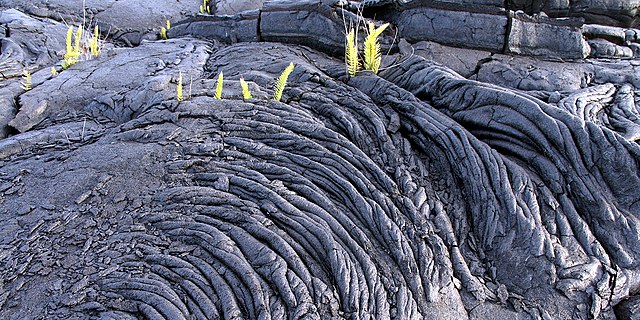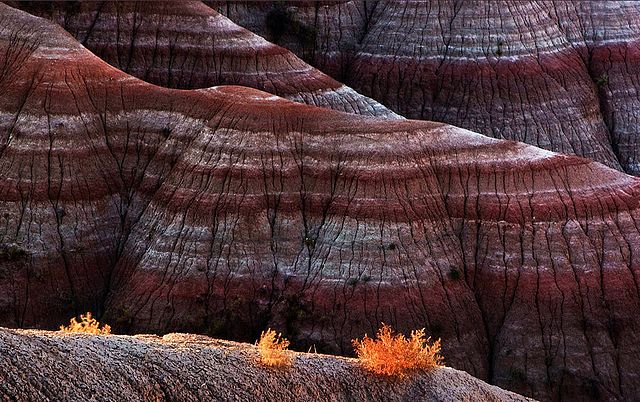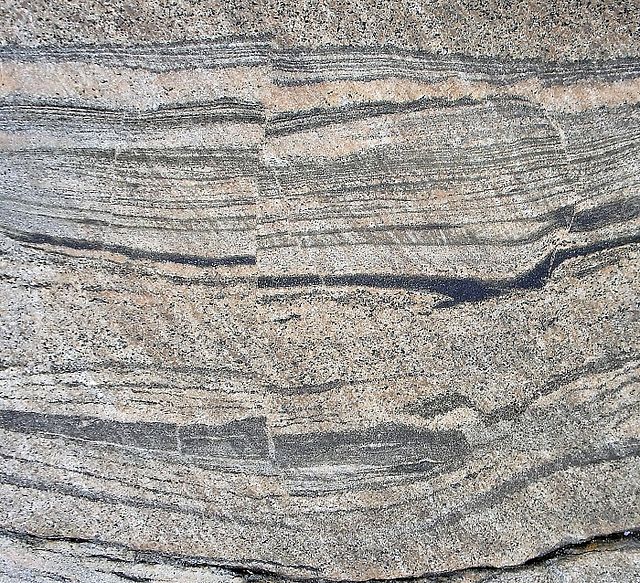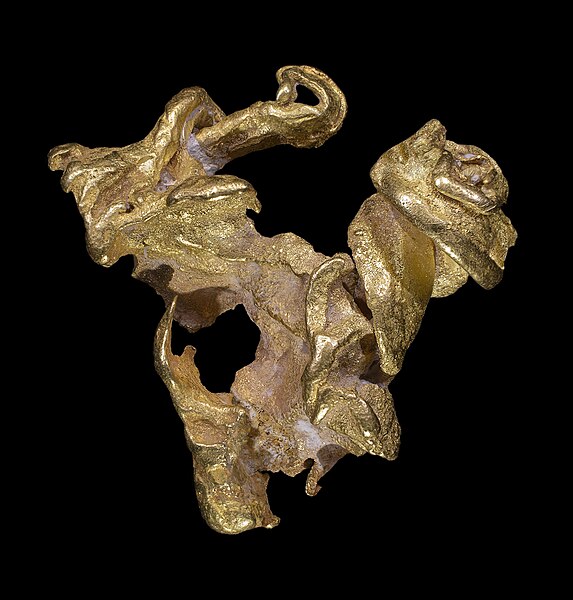Geology is a branch of natural science concerned with the Earth and other astronomical objects, the rocks of which they are composed, and the processes by which they change over time. Modern geology significantly overlaps all other Earth sciences, including hydrology. It is integrated with Earth system science and planetary science.
Solidified lava flow in Hawaii
Sedimentary layers in Badlands National Park, South Dakota
Metamorphic rock, Nunavut, Canada
Native gold from Venezuela
Natural science is one of the branches of science concerned with the description, understanding and prediction of natural phenomena, based on empirical evidence from observation and experimentation. Mechanisms such as peer review and repeatability of findings are used to try to ensure the validity of scientific advances.
Onion (Allium) cells in different phases of the cell cycle. Growth in an 'organism' is carefully controlled by regulating the cell cycle.
Plato (left) and Aristotle in a 1509 painting by Raphael. Plato rejected inquiry into natural philosophy as against religion, while his student, Aristotle, created a body of work on the natural world that influenced generations of scholars.
Johannes Kepler (1571–1630). Kepler's Astronomia Nova is "the first published account wherein a scientist documents how he has coped with the multitude of imperfect data to forge a theory of surpassing accuracy", therefore laying the groundwork for the scientific method.
Isaac Newton is widely regarded as one of the most influential scientists of all time.








